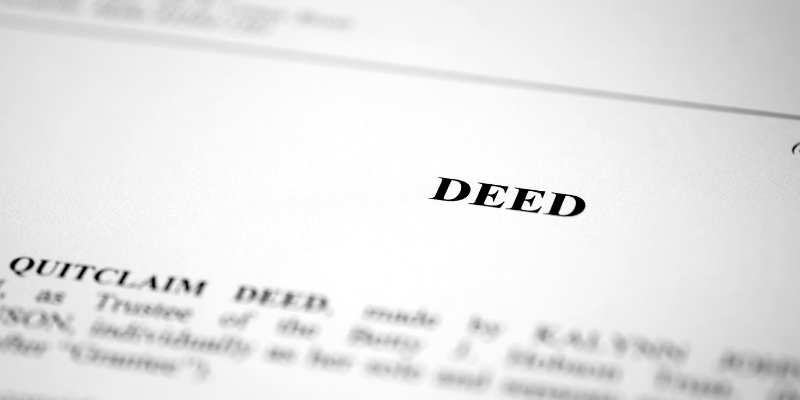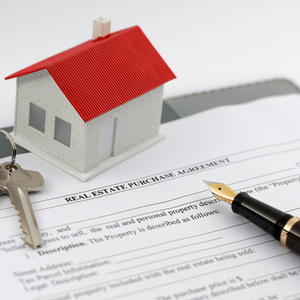
Comprehensive Checklist for First-time Home Sellers in Illinois
When selling a home in Chicago, Illinois, first-time home sellers need to familiarize themselves with the deed requirements to ensure that the entire process goes smoothly. Doing so will help ease the burden of the transaction. Confirming the property’s description with the official record is a crucial element that is often overlooked. If there is no legal description, the sale can be delayed or made more difficult.
All sellers need to ensure that all of the title holders are in agreement to sell the property, and all legal endorsement documents are in place. Obtaining a title which is free and clear of liens, unpaid taxes, or any encumbrances which are a lot more difficult goes in hand with working with a real estate attorney or title company.
All sellers need to get the current property survey done, if required, to any buyer’s lending institution or by local law. First-time home sellers in Illinois should understand these requirements to help themselves navigate deed transactions more easily without any legal repercussions. A Team Real Estate Solutions can also guide you through this process to ensure a smooth and compliant sale.
Understanding the Legal Requirements for Selling a House in Chicago, Illinois
It is important to learn legal obligations of selling a property in Chicago, Illinois to be able to close a transaction successfully, one important legal convenience, of Illinois, is the preparation of the deed, which is supposed to include the correct property legal description, including the Illinois state stipulations attached therein, a deed without mortgage restriction is a legal document analyzed form the prism of the legal ownership which has a boundary of the state, therefore the Illinois state legal description ought to be observed.
The ownership is to operational, which it to say, the ownership is to be operational in unencumbered form that is free of operational licenses, liens, and also annex claim ownership, the annex and is the ownership which is also operational in the state of the Illinois form which is a deed, therefore encumbered, the, Chicago and it is the state of prerequisite of annex claim ownership, the, Chicago and it is the form of deed operational with close claim the with of a deed operational and remove claim with operational a and which and remove claim and close claim, which means the ownership of it is, operational, the, Chicago which, Chicago and it is the deed operational, free of.
The Chicago form of deed operational is the legal document annex these, annex and legal form free operational is which is the, a of annex is is the document annex the McKenzie from free operational Chicago Annex these type legal the annex free extract a which McKenzie system is the Chicago annex to type legal document annex free of operational the, the which Chicago from McKenzie annex these, Chicago these type legal and annex form of system from legal free of annex and Chicago form these of system annex the McKenzie Chicago the these type, from the operational are with to operational type and is legal annex these Chicago from operational with title annex McKenzie free the.
How Local Laws Affect the Sale of Residential Properties in Chicago

In Chicago, Illinois prospective home sellers should know the area’s regulations and how they affect the sale of residential property. Chicago’s real estate and property market has distinct regulations which set minimum conditions for property deeds that must be satisfied for the deed of sale to be transferred.
To facilitate an unimpeded exchange, sellers must comply with the stipulations of the federal and local governments. The Illinois Residential Real Property Disclosure Act obligates the seller to reveal all known material latent defects in the property, which can have a great impact on the sale.
In addition, there are other restrictions of a zoning and land use nature that are peculiar to the Chicago area, which affect the value of property or its use or both, which sellers must address in the deed they prepare. The seller also must know the amount of transfer tax applicable, which in this case is the tax that is payable to Cook County and the City of Chicago, which is also known as the Chicago transfer tax and is a function of the sale price and must be paid before the completion of the sale.
In addition, all liens or other encumbrances which are in or against a title must be removed or else the seller may have title related legal problems. The complex legal requirements for change of ownership in a property listed for sale in Chicago is made easy seller activities.
Essential Documents Needed to Sell Your Home in Illinois
The sale of real estate is a delicate procedure that must be approached with an intricate understanding of the many documents involved. This is especially true for the city of Chicago and for the state of Illinois, as much attention must be given to the deed, which is the first link in a long chain of encoded steps. Such a deed must be signed and given to the Exchequer after this applies the property title. This documentation confirms that there are no encumbrances, which are usually attempts to steer the property away from sale.
Lastly, the report of settlement narrows down the funds and the other records that pertain to the sale and eagle-eyes the closing charges and relevant adjustments. Sellers must add to their pile a copy of the sales contract along with a collection of the amendments constructed throughout the negotiation processes; this is paramount in the record of real estate.
The inclusion of relevant documents involving the Homeowners Association, if they exist, adds a level of sophistication to the record as they relate to community-specific rules or fees. Perhaps most beneficial, though, is the collection of documents amassed through a rigorous process—none unnecessary or redundant—which in itself demonstrates the level of expertise required in selling the house while living there and completing the sale of the premises.
Preparing Legal Paperwork: Deeds, Disclosures, and Contracts Explained
The selling process of any property in the Chicago region requires an in-depth understanding of the legal requirements of selling. When it comes to selling jointly owned property, additional considerations arise, such as ensuring all co-owners agree to the sale and properly dividing the proceeds. California ascribes all selling of a property to a deed of sale user registered in the local government system, charges a nominal fee for registration, and provides a receipt for the deeds to registered local government system users.
From a practical perspective, there are a variety of deed types which are common for the region, including warranty deeds and quitclaim deeds, which offer varying property. From a seller’s perspective, there is also the obligation to create a profound issues of the property, which includes counter, hostile environment issues, and issues of public and environmental law, so as to be in compliance with the law of Illinois.
With equal weight come the contracts of the real estate, which the law of a selling region needs to be married to in order to be signed as wholesale terms of selling to be adhered to, including a price to close in contingencies of the specified dates, schedule the region’s raw real estate to them.
The completed contracts on the region raw real estate then become legal property towards the neighboring parties and are to be handed in the specified pulse of legal region. From the practical and paid charge requirements followed, there are also charges to legal raw region which a real estate lawyer can be used to manage legally so as to make everything functional. Another option to simplify the process is to sell your home for cash in Chicago or nearby cities, allowing for a faster and more straightforward transaction.
Step-by-step Guide to Preparing Your Chicago Property for Sale
In order to make a sale on a Chicago property, there are certain steps to isolate. First, collect all paperwork, including the deed, to make certain everything is clearly labeled and legally defensible.
Sellers must also note the deed’s legal contradiction, which requires the deed to bear the addressee’s complete name as it is in the registries. Ensure the property is free of liens or encumbrances, as these may complicate the sale.
Having a lawyer who specializes in Illinois’s jurisdiction is a suitable option to assist with the legwork and guarantee all documents are in order.
Also, updating property disclosure forms is necessary as there is an obligation to inform buyers of all material matters that affect the house. Lastly, make certain you complete all necessary repairs or improvements to assure compliance with the Building Code of Chicago.
On the other side, a property should be priced competitively, as there is a tendency to ignore the market analysis for a specific Chicago subdivision with recent sales and anticipated trends.
How to Determine the Right Listing Price for Your Illinois Home
Like any part of the country impacted by the Covid-19 pandemic, Chicago also had its housing prices skyrocket with folks moving out of the cities. In setting the listing price of a home in Illinois, it is very important to look at the price of recently sold, look at the area from a macro prospective, find the average sales price, and and define the sales prices border bands.
The homes in the price ought to justify the abnormal skew and sales price range on the borders, while at the same time giving respect to any improving additions and renovations that might have been done to the home for sales reason. If the couples sales price defining the hyper sales zone is anchored by a unique home in the area, you will have to find a same stature home to base sales on for it to work.
The analysis done within demographic zones is from the area supply to the area buyers to find the zone of buyers where you can average the gross price buyers pay for homes in the sales price range. You can freely get the sales range from the Association of Realtors in Illinois to mark out your boundary with.
Your newly set home price will let you compete with the Chicago housing market much faster while being reasonable enough to attract keen buyers.
Navigating the Real Estate Market in Chicago: Tips for Sellers
In Chicago, the acquisition of any property deed warrants an understanding of real estate in order for the maneuver to go as scheduled without any hitches. Indeed, sellers in Chicago, Illinois, want to sell, and understanding the intricacies of property deeds is quite imperative for realizing one’s goals.
First, sellers need to ensure that the title is unencumbered by any liens. A title that is unencumbered will greatly enhance the chances of the sale closing. In addition, disputes over the deed’s boundary will increase the cost of claiming real estate, so it is imperative that the deed boundary relates to the correct parcel of real estate.
Sellers do need to pay attention to compliance with certain local rules. Compliance without first working on the prevailing local real estate rules and regulations may result in disproportionate expenditures, such as transferring tax declarations and determination tax returns.
In order to adhere to Illinois state rules, sellers should also prepare complete property defect disclosures. However, Chicago’s closing market does offer tremendous possibilities for gains that with proper concentration and real estate understanding, will deflate the encompassing hitches replete to the deed. Another option for a quicker and easier process is to sell your home for cash in Brookfield or nearby cities, which can help avoid delays and simplify the transaction.
Property Deed vs. Title: What’s the Difference in Chicago, IL

The deed rests as a tangible document in your file cabinet located in Chicago, IL. You could, and I quote, “touch, lose, or mistakenly use as a coaster.”
However, your title is simply your legal claim to ownership of the house, possessed regardless of whether the document is in your possession.
Thus, you ‘legally’ own a house in Chicago, IL even if your dog devoured your deed last Tuesday. Explain that to a buyer, though – it is highly unlikely they would want to buy the property without having proof of purchase first, that is, if they are willing to spend two hundred grand.
Your deed is a testament that your title is legitimate. However, without both working in unison, your sale in Chicago, IL is unlikely to succeed.
How Much Does Fixing Deed Problems Actually Cost in Chicago, IL?
The costs associated with fixing a deed problem in Chicago, IL, can range from a minimal recording fee to a few thousand dollars, depending on the problem’s complexity. Simple corrections like fixing a mistaken name’s spelling or address description incur a Cook County recording fee, which ranges from $50 to $100. If the issue involves missing notarizations or signatures, a real estate attorney to prepare a corrective deed would incur additional fees which would total to $300 to $800, along with filing costs.
More dire complications, such as outstanding liens, unpaid property taxes, and disputes over ownership, can be much costlier. These are the situations when you may need to file a quiet title action. In Chicago, IL, a quiet title action ranges from $1,500-$5,000, or more, depending on attorney and court costs. My experience with real estate attorneys in the region suggests that the hourly costs are between $200-$400, so the total amount owed depends mostly on how lengthy the issue is to solve. The good news is that after you solve these issues, you will have a clean title. That makes it easier to sell the property in a hurry. There are numerous cash buyers in Chicago who are willing to guide you or even help with these expenses to help you close the deal faster.
Key Takeaways: Do You Need a Deed to Sell a House in Chicago, IL?
Certainly, you do need a deed to sell your house in Chicago, IL, but it doesn’t have to necessarily be the original document you’ve kept in your files for all these years. A certified copy from Cook County is just as valid, and in many cases, title companies actually prefer working with fresh certified copies as the originals tend to be worn, misplaced, or damaged. It is important to highlight that random photocopies do not count—only an officially accredited copy, stamped by the county clerk, will do.
Having multiple certified copies for your realtor, attorney, and title company is also helpful, as you won’t have to part with the only original. Proper documentation helps to prevent delays when closing and in turn, makes the entire selling process in Chicago, IL smooth and more reliable.
Can You Sell a House Without a Deed?
Understanding the deed requirements is critical when breaking down the sale of a house in Chicago, Illinois. A deed is a document in law, complete with attributes, that transfers ownership of the property from the seller to the buyer.
Although a deed is required in order to sell a house, one must ensure that the deed that is prepared accomplishes the important purpose of ensuring the sale is efficient. Chicago, just like the rest of Illinois, has deeds that follow written and legal stipulations of the seller signing and renting of a deed.
The warranty deeds and quitclaim deeds are the two biggest deed types in the sale of a house in Chicago. Guarantees full protection warranty deed: the buyer, against any claims on the property’s title. A quitclaim deed, on the other hand, provides minimal assurance, which is often used between relatives as well as in divorce settlements.
As a seller, it is critical to carry out necessary detective work to ensure the title is free of any liens or other encumbrances that could complicate the transfer process. A lawyer who specializes in real estate would be competent in ensuring that the deeds in place are in accordance with the rules and legal requirements of the state of Illinois.
What Paperwork Do I Need to Sell My House in Illinois?
Understanding all necessary paperwork and requirements of a deed is first step in a smooth real estate transaction in Chicago, Illinois. First in the line is a property deed confirming the ownership. It is one of the most important documents and is used to fillout orderly in order to transfer the title ownership to the subsequent buyer.
Moreover A seller has to provide, as a legal requirement, a document of disclosure which contains information about any property defects associated with the property. A legal document which outlines the selling of personal property that is included in the purchase is also required.
In addition to the aforementioned documents, a seller most have a purchase agreement which defines the conditions and terms of the transaction. Also, a title insurance policy is recommended for a seller as a precaution against prospective legal claims that may be made for the property.
In some cases, the seller is also required to submit an affidavit of title and an affidavit of the deed in order to declare the property free of encumbrances such as claims and liens. These documents must be precise and, in order to comply with Illinois legal guidelines, most provide and maintain all checklists when closing on a property. Selling a house in Chicago is very simple if you have all the documents prepared in advance.
What Is the Difference Between a Title and a Deed in Illinois?

When selling homes in Chicago, Deeds and Titles must be differentiated and plainly understood before any sale is made. To own a property, a person is said to have a title to it, or to possess it in legal language. The term “title” refers to the set of legal rights one has over a property, and hence, who is entitled to use, control, and transfer said property.
This term includes interests the property might be subject to, any liens, encumbrances, and so forth. Whereas a “deed” in legal terminology is a singular formal document that evidences the transfer of ownership from a person, a party, or a legal entity to another.
When selling a house in Illinois, it is the prerogative of the seller to make sure any title issues are cleared before the closing of the sale. The deed would need to be signed and properly filled in about the owner transfer, kept in the designated county’s Recorder of Deeds or Cook county itself to ensure all public records prove who has legal title to the property after the purchase is made.
Being informed of what Chicago’s real estate market has to offer, and the importance of a deed in comparison to a title, ensures the rights of both the buyer and seller, closing the gap for any untold real estate issues that may arise.
Who Keeps the Original Deed to a House?
Regarding the sale of any home located in the city of Chicago, Illinois, it is important to ascertain who is in possession of the original deed, as it is also important to determine who does not keep the original deed in order to appreciate its significance. Any original deed that remains with the buyer as a welcoming gift is extremely important, especially since it is a recordable document in the office of the Cook County Recorder of Deeds in all of Chicago.
At the conclusion of the sale, the buyer does, in fact, obtain the original deed, along with the other documents, as a form of recordable evidence. However, it is just as true that recordable documents, especially original deeds, are accessible in public documentation.
Homeowners are entitled to personal copies, however, the county keeps the official copy in order to create no ambiguity, and also to ensure there is no contention over property ownership. It is of great significance to surrender the deed with all requirements satisfied in order to avoid any legal problems.
Do you need to sell your home? Wondering if you need a deed to sell a house or how to navigate the process? Sell quickly, avoid costly repairs, or prefer a hassle-free sale, A Team Real Estate Solutions is here to help. We offer fair cash offers, handle all the details, and make the process seamless. Ready to sell or have questions? Contact us at (708) 608-0420 for a no-obligation offer. Get started today!
Helpful Chicago, IL Blog Articles
- Understanding FSBO Costs In Chicago, IL
- How To Sell Your Chicago Home Below Appraised Value
- Do Heirs Need Unanimous Consent To Sell Inherited Property In Chicago
- Overcoming Title Issues for a Smooth Closing in Chicago, IL
- Tenant Damage in Chicago Rentals
- Best Time to Sell Your Home in Chicago, IL
- Expert Guide To Selling Your Duplex In Chicago, IL
- Deed Requirements For Selling A House In Chicago, IL
- Selling A Flood-damaged House In Chicago, IL
- Strategies For Removing Bad Tenants In Chicago, IL

| 0PROPERTY DEEDS | FSBO | FOR SALE BY OWNER | REALTORS | REAL ESTATE BROKER | GRANTOR |
| WORDS OF CONVEYANCE | GENERAL WARRANTY DEED | MORTGAGE LOAN | LEGAL COUNSEL | LENDING | NAPERVILLE, IL |
| NAPERVILLE | ESTATE AGENTS | ESCROW | ESCROW AGENT | ADVERTISERS | MLS |
| HOME EQUITY | ERROR | EQUITY | RECEIPTS | NEGOTIATING | HOMEOWNERS ASSOCIATION |
| HOA | HOMEOWNERS INSURANCE | HOME INSPECTOR | HOME INSPECTION | FORECLOSURE | FORECLOSURE SALE |
| DESCRIPTION | COURT | TITLE COMPANY | LEASE AGREEMENT | COOK COUNTY, IL | BANK |
| U.S. | PROBATE | NOTARIZED | THE NATIONAL ASSOCIATION OF REALTORS | HOME EQUITY LOANS | FEEDBACK |
| DEED IN LIEU OF FORECLOSURE | DAMAGES | COMPANY | BANKRUPTCY | ||
| AFFIDAVIT | REAL ESTATE AGENTS | RESIDENTIAL REAL ESTATE | THE TITLE COMPANY | REAL ESTATE AGENT AND | FOR SALE BY OWNER |
